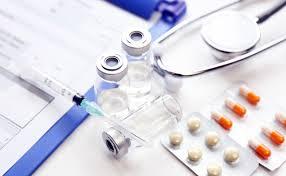Depression Rehab refers to a structured and intensive treatment program designed for individuals struggling with moderate to severe depression. Unlike basic outpatient therapy, rehab programs provide a higher level of care, constant clinical support, and a safe environment where individuals can focus entirely on healing.
1. Purpose of Depression Rehab
The goal of Depression Rehab is to:
-
Stabilize severe symptoms
-
Reduce suicidal thoughts
-
Improve emotional and mental functioning
-
Build long-term coping skills
-
Address underlying trauma, anxiety, or co-occurring disorders
2. Residential & Inpatient Care
Many Depression Rehab programs offer residential or inpatient treatment, where clients live at the facility.
Benefits include:
-
24/7 medical and psychiatric support
-
A structured daily routine
-
Safe and peaceful environment
-
No distractions from outside stress
-
Intensive therapy multiple times a day
3. Evidence-Based Therapies
Rehab centers use clinically proven therapies such as:
-
Cognitive Behavioral Therapy (CBT)
-
Dialectical Behavior Therapy (DBT)
-
Trauma-Informed Therapy
-
Group Therapy & Peer Support
-
Family Counseling
These therapies help change negative thinking, improve emotional regulation, and strengthen coping skills.
4. Medication Management
Psychiatrists in rehab provide:
-
Detailed evaluation
-
Antidepressant medication (if needed)
-
Side-effect monitoring
-
Regular progress tracking
Medication is adjusted carefully to ensure maximum effectiveness.
5. Dual Diagnosis Treatment
Many people with depression also struggle with:
-
Anxiety disorders
-
PTSD
-
Bipolar symptoms
-
Substance abuse
Dual Diagnosis programs treat both depression and co-occurring conditions at the same time, leading to better long-term recovery.
6. Holistic Healing Activities
Modern Depression Rehab centers offer holistic services such as:
-
Mindfulness & meditation
-
Yoga and breathing exercises
-
Art therapy & music therapy
-
Fitness and nutrition programs
-
Stress-reduction techniques
These activities heal both the mind and body.
7. Aftercare & Relapse Prevention
Once treatment ends, aftercare planning includes:
-
Continued therapy
-
Medication follow-ups
-
Support groups
-
Personalized relapse-prevention strategies
This helps maintain stability and prevents symptoms from returning.
Conclusion
Depression Rehab provides an intensive, supportive, and structured environment for individuals suffering from severe depression. With a combination of therapy, medication, holistic care, and aftercare planning, rehab programs help clients achieve lasting emotional stability and long-term recovery.



